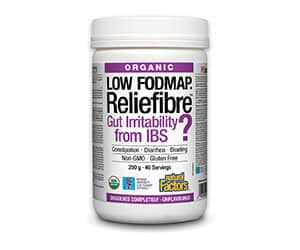
The body may not produce enough PEA to achieve a therapeutic effect, making supplementation essential.
Have you discovered PEA yet? If not, now is the perfect time to explore this fascinating compound and its powerful potential to support your health. Although first discovered in the 1950s, our understanding of PEA’s therapeutic benefits has gained significant momentum over the past 30 years. Let’s dive into how PEA can take your health to the next level.
PEA: A NATURAL COMPOUND FOR HEALTH
PEA, or palmitoylethanolamide, is a fatty-acid-like compound produced naturally in the body and found in foods such as egg yolk, soybeans, and peanuts. Considered part of the “extended” endocannabinoid system (ECS), PEA indirectly interacts with cannabinoid receptors and other key pathways. The ECS is an essential cell-signalling system that regulates mood, pain, inflammation, sleep, cardiovascular health, immunity, and memory, with PEA supporting its function.
Disruptions of the ECS can lead to various health concerns, including chronic pain and inflammation, mood disorders, sleep disturbances, cognitive decline, impaired immunity, and digestive disorders. Restoring ECS balance is crucial for overall health, and strategies for achieving this may involve regular physical activity, stress management, proper sleep, and supplements such as omega-3 fatty acids. PEA supplementation may also help correct ECS imbalances and support our health.
PEA FOR PAIN AND INFLAMMATION
PEA is produced in all tissues as a protective response to injury, inflammation, and pain. However, chronic pain and inflammation can lower PEA levels.
Supplementing with PEA may help restore its anti-inflammatory and pain-relieving effects as it interacts with different receptors, inhibits mast cells, and lowers inflammatory markers.
In one trial, participants with pain related to various causes lasting more than six months took 600 mg of PEA twice daily for three weeks, followed by once daily for four weeks. Pain intensity, measured on a numeric rating scale, decreased from 6.4 at baseline to 2.5 by the end of the study. PEA reduced pain, whether used alone or with other medications and caused no adverse effects. Extensive research highlights PEA’s potential in managing chronic pain associated with conditions such as TMJ dysfunction, sciatica, carpal tunnel syndrome, arthritis, and migraines.
PEA FOR ALLERGIES
Because of its ability to modulate the immune system, reduce inflammation, and alleviate oxidative stress, PEA shows promise in managing allergies. It helps ease symptoms by blocking the release of proinflammatory compounds from cells, such as histamine from mast cells. A multinational, multicentre study on atopic eczema showed that a PEA-containing cream significantly reduced redness, itching, dryness, and skin picking while improving sleep quality. Additional research has shown that PEA can alleviate symptoms of allergic rhinitis.
PEA FOR BRAIN HEALTH
PEA plays a distinctive role in supporting brain health and may offer protection against neurodegenerative diseases. Specifically, it is neuroprotective and helps counteract neuroinflammation, a key factor in conditions like Alzheimer’s disease, frontotemporal dementia, and Parkinson’s disease. Although long-term studies are still needed, initial research suggests that PEA may improve neurobehavioural functions such as memory and learning, act as a potential disease-modifying agent in the early stages of neurocognitive disorders, and promote neurogenesis.
In young, healthy adults, PEA improved brain-derived neurotrophic factor levels and memory, showing its promise for improving cognitive health.
PEA FOR DIGESTIVE HEALTH
Regarding digestive health, PEA has been shown to reduce pain associated with irritable bowel syndrome (IBS) and alleviate inflammation linked to inflammatory bowel diseases such as Crohn’s disease and ulcerative colitis. Beyond PEA’s pain-relieving and anti-inflammatory effects, it also supports gut health by reducing intestinal motility, modulating the gut microbiota, and decreasing intestinal permeability.
Incorporate PEA into your routine
The body may not produce enough PEA to achieve a therapeutic effect, making supplementation essential. PEA dosages typically range from 400 to 1200 mg daily, with clinical studies often starting with a higher dose followed by a lower maintenance dose. It may take a few weeks to up to three months to experience the full benefits. PEA has an excellent safety profile and can be used safely alone or alongside other medications. When selecting a PEA supplement, choose a micronized form for better solubility and absorption.
PEA also shows promise for supporting viral and bacterial infections, healthy aging, exercise recovery, menstrual cramps, and pain-related sleep disruptions. With its diverse therapeutic potential, PEA can elevate your health in many impactful ways.














